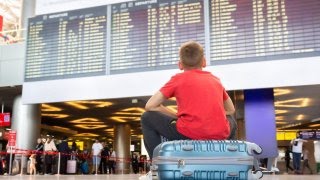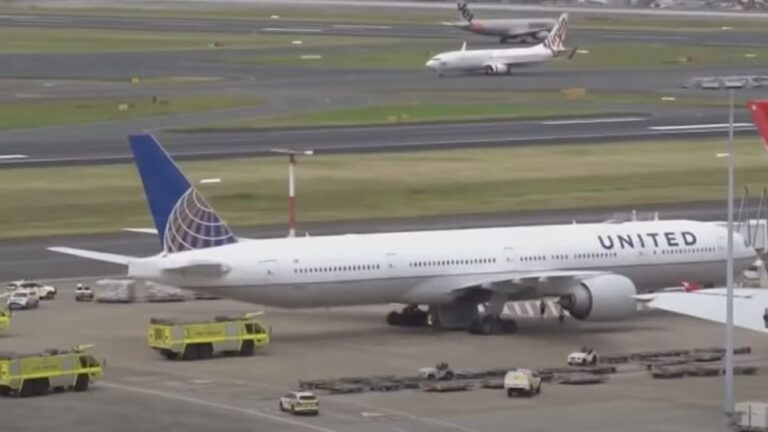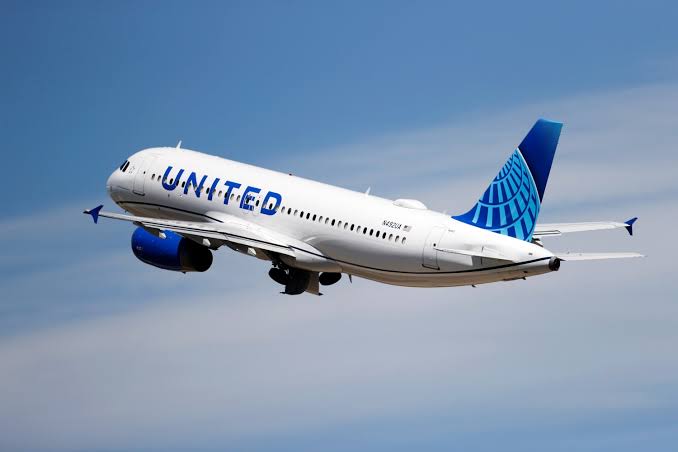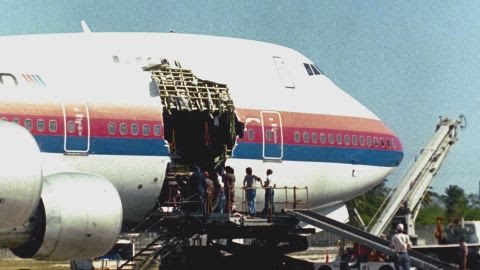Flights from Delta, United and American Airlines temporarily grounded
Departing flights from Los Angeles International Airport, Hollywood Burbank Airport, Long Beach Airport, and John Wayne Airport in Orange County were temporarily grounded Friday after the airlines asked the Federal Aviation Administration for a global ground stop on all flights, according to an alert from the FAA.
“We are seeing some delays from United, Delta and American Airlines. Our communications center is in constant communications with the FAA,” LAX spokeswoman Dae Levine told City News Service. Levine added that she was not sure if all the delays were related to the problems at Melbourne Airport.
Flights that are already in the air will be allowed to continue toward their destinations but American, United, or Delta flights will not depart from their airports.CrowdStrike is a U.S. cybersecurity company that has admitted to being responsible for the error and is working to correct it.
“A third-party software outage is impacting computer systems worldwide, including at United,” United Airlines said in a statement on Friday morning. “While we work to restore those systems, we are holding all aircraft at their departure airports. Flights already airborne are continuing to their destinations.”
American Airlines stated at 2 a.m. Friday they were back up and running as normal.
Local
Get Los Angeles’s latest local news on crime, entertainment, weather, schools, COVID-19, cost of living, and more. Here’s your go-to source for today’s LA news.“Earlier this morning, a technical issue with a vendor impacted multiple carriers, including American. As of 5 a.m. ET, we have been able to safely re-establish our operation. We apologize to our customers for the inconvenience,” the statement read.
Outages are spreading worldwide and are being reported at Berlin Airport in Germany, the London Stock Exchange, Google Cloud, Microsoft, and Gatwick Airport in the United Kingdom.
Variety reported CrowdStrike issued a statement, stating the cybersecurity company is “actively working with customers impacted by a defect found in a single content update for Windows hosts. Mac and Linux hosts are not impacted. This is not a security incident or cyberattack. The issue has been identified, isolated and a fix has been deployed.”
Meanwhile, Microsoft said it is investigating the extent of the outage.
“We’re investigating an issue impacting users’ ability to access various Microsoft 365 apps and services,” Microsoft said in a statement released on social media Friday morning.
Shipments at the Ports of Los Angeles and Long Beach are being disrupted and delayed. KNX is reporting hundreds of trucks have been waiting for hours for cargo to be released and loaded.
Amtrak is reporting the outage is preventing credit card transactions for its Pacific Surfliner service. Apple Pay, Google Pay, and PayPay payments can be used to complete online reservations.
On a recent Friday, travelers across several key airports in California faced an unexpected disruption as departing flights from Los Angeles International Airport (LAX), Hollywood Burbank Airport, Long Beach Airport, and John Wayne Airport in Orange County were temporarily grounded. This incident, which led to a global ground stop requested by airlines, was due to a technical issue that emanated from a third-party software provider, CrowdStrike, a well-known U.S. cybersecurity company. This ground stop was confirmed by an alert from the Federal Aviation Administration (FAA), which closely monitored the situation.
LAX spokeswoman Dae Levine provided insight into the evolving situation, noting, “We are seeing some delays from United, Delta, and American Airlines. Our communications center is in constant communications with the FAA.” She also mentioned that while she could not definitively link all the delays to problems at Melbourne Airport, the impact was widespread enough to cause significant disruptions.
Despite the chaos on the ground, flights already in the air were permitted to continue toward their destinations. However, departures from American, United, and Delta airlines were put on hold, affecting a considerable number of passengers and operations.
CrowdStrike admitted responsibility for the error, which was due to a defect in a single content update for Windows hosts. The company assured the public that Mac and Linux hosts were not affected and emphasized that this was not a security incident or cyberattack. In their statement, CrowdStrike said, “We are actively working with customers impacted by a defect found in a single content update for Windows hosts. The issue has been identified, isolated, and a fix has been deployed.”
The ripple effect of this outage extended beyond just the airports. American Airlines reported that they had managed to resume normal operations by 2 a.m. on Friday. They issued a statement early that morning, saying, “Earlier this morning, a technical issue with a vendor impacted multiple carriers, including American. As of 5 a.m. ET, we have been able to safely re-establish our operation. We apologize to our customers for the inconvenience.”
United Airlines also acknowledged the widespread impact of the software outage. Their statement read, “A third-party software outage is impacting computer systems worldwide, including at United. While we work to restore those systems, we are holding all aircraft at their departure airports. Flights already airborne are continuing to their destinations.”
The outage’s global impact was evident as reports emerged of disruptions at Berlin Airport in Germany, the London Stock Exchange, Google Cloud, Microsoft, and Gatwick Airport in the United Kingdom. These disruptions highlighted the interconnected nature of modern technology infrastructure and the cascading effects a single point of failure can have across various sectors and geographies.
Variety, in its coverage, reported that CrowdStrike was deeply involved in rectifying the problem. Their official statement clarified the scope of the issue and their ongoing efforts to mitigate it. Meanwhile, Microsoft acknowledged the issue affecting its users’ ability to access various Microsoft 365 apps and services. In a statement released on social media, Microsoft indicated, “We’re investigating an issue impacting users’ ability to access various Microsoft 365 apps and services.”
The repercussions of the outage were not limited to air travel. The Ports of Los Angeles and Long Beach, critical hubs for international trade, experienced significant disruptions. Reports indicated that shipments were delayed, with hundreds of trucks waiting for hours for cargo to be released and loaded. This backlog underscored the dependency of global supply chains on smooth and uninterrupted technological operations.
Amtrak, the national passenger railroad service, also reported issues due to the outage. Their Pacific Surfliner service, which operates along the Southern California coast, was unable to process credit card transactions. To mitigate the impact on passengers, Amtrak advised the use of alternative payment methods such as Apple Pay, Google Pay, and PayPal for completing online reservations.
This incident serves as a stark reminder of the vulnerability of modern systems to technological disruptions and the far-reaching consequences such issues can have. While CrowdStrike’s swift response and the collaborative efforts of affected companies helped to mitigate the impact, the event highlighted the need for robust contingency planning and resilient infrastructure to handle such unforeseen challenges.
For travelers, the day was marked by frustration and uncertainty. Many found themselves stranded at airports, awaiting updates on when their flights would resume. The broader impact on logistics and commerce also served as a critical lesson for industries reliant on seamless technological operations.
In the aftermath, industry experts and stakeholders are likely to re-evaluate their reliance on third-party software providers and the measures in place to handle such crises. The incident has undoubtedly sparked discussions on improving system redundancies, enhancing cybersecurity measures, and ensuring better communication protocols during such disruptions.
Overall, while the technical glitch was resolved and normalcy restored, the day’s events underscored the intricate web of dependencies in today’s digital age and the paramount importance of resilience and preparedness in maintaining the stability of global operations.






